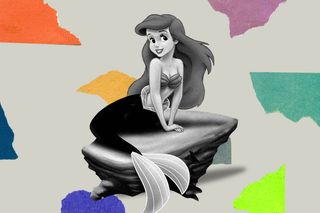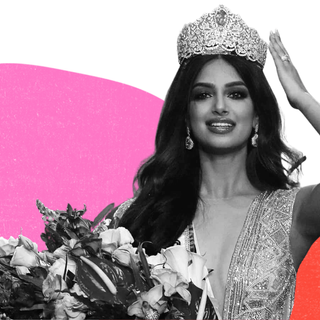
Overrated, Not: ‘The Little Mermaid’
In ‘Overrated, Not,’ we revisit things that were so good, they quickly turned bad, and make a case for why they deserve a comeback.

In ‘Overrated, Not,’ we revisit things that were so good, they quickly turned bad, and make a case for why they deserve a comeback.
One of the most interesting party anecdotes I have in my arsenal has to do with The Little Mermaid. When I was roughly around 3 years old, I nearly died a rather violent death that may have potentially closed much of the Disney theme parks forever. During a parade at Disney World, I wrenched free of my parents’ tight handhold with surprising strength and ran as fast as my tubby baby legs could carry me towards the procession, approximately a gazillion times my own size, threatening to trample and utterly annihilate me — just to reach Ariel. A security guard caught me in the nick of time and saved the day from taking such a dark turn. The incident stands testimony to my undying (or rather, near-death) passion for the world under the sea.
The Little Mermaid is a story about a young woman who is curious. It is a tale of yearning and mythologizing that which we are irrevocably drawn to and long to discover by any means. For Ariel, it was the world of humans. For me, it was the world of merpeople. As an ardent watcher of the film many, many times over, my fascination with it came from having a glimpse into a world so far beyond the logic and rules of our own, it provided a sense of wonder, amazement, and magic.
It is similar to how Ariel felt about humans — and the inversion of this desire makes our world look as exciting and full of intrigue as it does to Ariel.
Disney’s adaptation of Hans Christian Andersen’s dark, anti-fairytale is anything but. It bursts with energy, zeal, delight, color; its iconic marimba notes from the theme song give me a shiver of joyous nostalgia to this day. But what came into the world with a splash and gusto eventually began to age poorly, as many criticized its unfeminist credentials. Ariel began as a refreshingly “spunky” heroine, but quickly devolved into a character that mothers vowed never to introduce their daughters to.
These “pop-feminism” critiques, as critic and video essayist Linday Ellis calls it, that swarmed the cultural discourse in the 2010s denounced the film for, primarily, basing its central character arc around a man. Except, it didn’t.
Several think pieces lambasted the movie for purportedly promoting the idea that Ariel “gives up” everything for a man. But Ariel’s adorable curiosity for simple human objects, like the fork (“dinglehopper”), ever since she can remember doesn’t exactly spell hopeless love-sickness over a man. What part of her nerdy cave full of human trinkets, meticulously organized and lovingly stored, shows anything but a thirst for knowledge and adventure? How is it that someone who so ardently searches for and studies artifacts from another world that she forgets important royal obligations is denounced for merely being all about a prince?
Related on The Swaddle:
New Tool Tests Gender Bias in Movies, Ruins ‘Frozen’ for Everyone
These feminist critiques of the film are arguably based on an all too literal interpretation of what happens in the middle of the story. Her bargain with Ursula, the sea witch, to give up her voice in exchange for a pair of legs is interpreted as the ultimate disempowerment, even objectification, of women there ever was. On the contrary, however, it symbolizes autonomy from the tyrannical grip of her father, who refuses to indulge her curiosity. Arguably, Prince Eric is only a means to an end — the end being to enter and explore an entirely different world from her own, and satiating her curiosity about it.
“Bright young women, sick of swimming / Ready to stand / And ready to know what the people know / Ask ’em my questions and get some answers,” she sings early on. And this, arguably, is her main purpose and arc.
The interpretation that Ariel losing her voice is a metaphor for losing her agency, further, implies that she has no voice if she loses her physical one. But as is clearly evident, and contrary to the lesson Ursula imparts in the deliciously campy “Poor Unfortunate Souls,” Ariel never sexualizes herself to attract the charms of the prince. What endears her to him, instead, is who she is. Her curiosity, communicativeness, and kindness still come through, despite the fact that she can’t talk.
The big turning point of the film, the one that motivates Ariel to seek out Ursula in the first place, moreover, is not a prince. It is her father destroying her collection of items — her study, if you will — in order to get her in line with her “duties” of singing for other people. But Ariel is rarely interested in breaking into song like others would like her to. What ultimately steers the plot forward is heartbreak over her ambition and inquisitiveness being cruelly stamped out, not love for someone she “just met.” This tale — of rebellion against authoritarian control — is one that is old as time and continues to be relevant.
And as for the argument about Ariel supposedly losing everything for a man, her alternative was to remain beholden to her authoritarian father — i.e., lose everything to another man. At least the former allows her to explore her passions.
And therein lies the problem with feminist criticisms of the early Disney Princess canon. It happened at a time when feminism in the mainstream was too corporatized, too focused on individual self-empowerment — in other words, too girlboss-y. This meant that Disney characters like Ariel were criticized as anti-feminist and bad fictional role models – simply because they didn’t have an “entreprenual” arc, or didn’t define independence as “not needing a man.”
Take this line, from one such piece: “The Sea Witch is simply a successful businesswoman who understands how the real world works.” It is hard not to roll your eyes at such a characterization of Ursula. For one thing, coercively dishing out wildly unfair bargains is not a business ideal to aspire to.
When Ursula is confronted and finally vanquished, it comes as a relief to all merpeople. Why? Not because she is a “successful businesswoman,” but because she exploits people’s suffering, their deepest desires, and their insecurities for her own personal gain — with a cruel and irreversible consequence for not paying “the price.” Despite monarchy prevailing as the benevolent status quo, this is an objective triumph that resonates with contemporary (read: neoliberal) times.
For another, Ursula serves as an incredibly subversive character for the entire Disney canon at the time, and not because she is… [checks notes] a “total workaholic.” The true subversiveness of Ursula lies in something else. Howard Ashman, the openly gay composer of The Little Mermaid, is said to have modeled her after the famous drag queen Divine, as a middle finger of sorts to the Reagan administration’s apathy towards the AIDS epidemic and the queer movement. As scholar Laura Sells notes: “In Ursula’s drag scene… Ariel learns that gender is performance; Ursula doesn’t simply symbolize woman, she performs woman.”
“‘Ariel learns gender, not as a natural category, but as a performed construct.’ It’s a powerful message for young girls, one deeply threatening to the King Tritons (and Ronald Reagans) of the world,” Smithsonian further adds.
Lindsay Ellis also notes that Ariel entering into a bargain like this is not “mutilating” herself for a man — and that this would be a straitjacketed, cis-heteronormative reading of the movie. As one of the main engineers of the plot, Ashman made sure to emphasize the metaphor of being closeted, and of not feeling at home within one’s own body. Taken in this sense, the queer subtext of the film makes it more subversive than the popular critiques gave it credit for.
And so we have it: even as earlier studies suggested that Disney princesses like Ariel may be bad for young girls, we’ve now come full circle to realizing that actually, they may not be all bad. In fact, in the 2020s when we’re all stuck in unchanging, restrictive worlds of our own, The Little Mermaid deserves a resurgence for what it can teach young people about self-identity during such a time.
I, for one, stand by my three-year-old self. The Little Mermaid told her about what it means to dream big, that being lost in your own inventiveness and curiosity isn’t a bad thing, that being inquisitive is a virtue. Is it the greatest movie ever? Of course not. But does it deserve to be relegated to the backrooms of the Disney universe simply because it doesn’t hold up to the corporatized ideal of empty empowerment over self-fulfillment? Also no. By today’s barometer, it is far from overrated — it stands as a tribute to the power of storytelling through spectacle, grandeur, and the irrevocable impulse to simply discover who you are in a world that doesn’t permit it.
Rohitha Naraharisetty is a Senior Associate Editor at The Swaddle. She writes about the intersection of gender, caste, social movements, and pop culture. She can be found on Instagram at @rohitha_97 or on Twitter at @romimacaronii.
Related


‘Succession’ Plays Out Like a Shakespearean Tragedy — One Where People Are Doomed to Live
